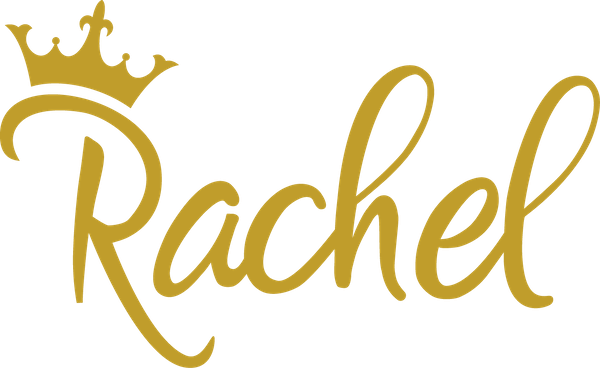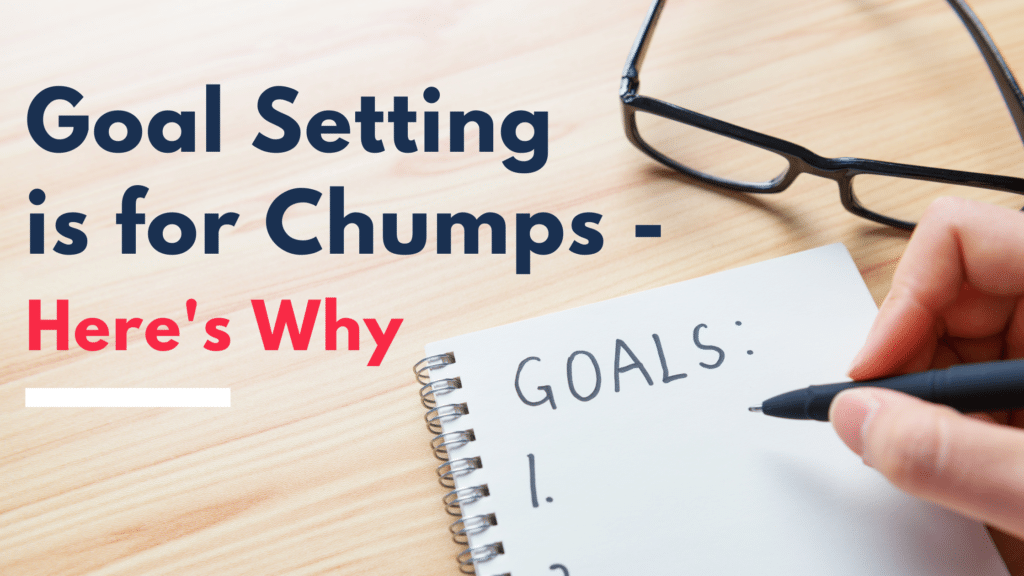By Kate Norris, habits & systems coach.
Whenever we start something new – whether it’s a new business or a new year or a new job – we’re always told that we need to set goals.
This makes sense, I mean, if you don’t know where you’re going then it doesn’t matter where you end up.
We’re told that goals help us gain control over our lives. They help us achieve more, they help improve performance, increase our self-confidence and challenge us to grow.
Goals help us measure and take pride in our achievements. If you do a Google search there are millions of resources and tools and templates and people to help us set and achieve goals.
But goal setting on its own is for chumps.
Goal setting on its own can be frustrating, demotivating and pointless.
Because goals are win or lose. You either achieve them or you don’t achieve them. Goals by their very nature are binary.
One of the most common New Year’s resolutions is to lose weight. Let’s take someone who has set a goal using the SMART framework.
“Lose 20 pounds of weight (by the scales) by June”
✅ SPECIFIC – Lose 20 pounds in weight
✅ MEASURABLE – 20 pounds
✅ ACHIEVABLE – Yes (assuming they are overweight to begin with)
✅ REALISTIC – Yes (again, assuming this is correct for this person)
✅ TIMELY – By June
In June if this person goes back to review their goal, there is a yes no answer – did they lose 20 pounds or not?
If they did, excellent! They’ve achieved their goal. If not, they failed.
The only focus becomes did they or did they not lose 20 pounds?
What if, instead, this person focused on the habits, routines and systems around weight?
The habits around weight might include eating healthily and consistently exercising. This doesn’t mean you have to go to the gym or go on a diet. The habit and the routine might start really small. It might be everyday you must eat one vegetable. Over the course of months this becomes three or four vegetables a day. Every day you just improve very slightly. In terms of exercise, it might be everyday you commit to going for a walk for five minutes. Over the months, this 5 minutes might increase to half an hour. The focus now is not on losing weight. The focus is on healthy habits.
At the end of June, because there’s more things happening with habits and routines, There’s more to take note of than simply the goal of did you or did you not lose 20 pounds. Maybe you’ve discovered that you really like vegetarian food. Maybe you’ve discovered that you’ve got more energy because you’re eating better and exercising more. Maybe you’ve discovered that junk food as a treat is more enjoyable than an everyday thing.
And after June the healthy habits, the systems that you’ve put in place continue.

The trap that we can fall into is thinking that we’ve gotta establish habits and routines and perfect systems straight up. But you don’t have to do them straight away. You can do them tiny little bits at a time rather than starting with exercising everyday for two hours. Maybe you just start with “get out of bed, put my shoes on and walk to the letterbox”
Habits that you start have to be achievable; they have to be easy. Exercising for two hours everyday when you’ve gone from basically doing nothing is not achievable. It’s not fun. It’s not easy and frankly it’s not going to happen. It might happen one or two days But it’s not going to continue.
However, putting your shoes on and walking to the letterbox – that’s achievable. It’s easy, and it’s something that I could probably do everyday. After you get used to doing that for a couple of days, then you increase it to walking around the block, or maybe walking for five minutes again. Now because you’ve got the habit of actually putting your shoes on and going outside the house, that extra tiny little bit is still easy and achievable, and you’re much more likely to do it.
It’s exactly the same inside a business. If you set yourself a goal of having 5,000 followers on Instagram. That’s a huge goal, and it’s either win or fail. What if instead we focused on the systems and on the habits of maybe everyday posting something on storeys? Committing to sitting down for five minutes everyday and thinking about your content.
When it comes time to review the goal of having 50,000 followers, maybe you only have one or two thousand. However, what sort of habits have you built? What sort of skills have you actually learned in that time? Is it how to do content better? Is it making sure that you put time aside everyday to look at your content? Have you learned how to find really good lighting for your stories? There’s so many other skills that you might recognise that you wouldn’t have noticed if you were just purely looking at the number of followers that you have. It’s the same with all social media accounts. There’s more than just followers, likes, and all of those obvious metrics.
If you want to write a book, that’s a huge goal! If you don’t achieve it, it becomes a win/lose situation. There’s no nuance there.
If you only have your goal, then not writing a whole book feels like a failure. But if your system is to write for half an hour every day, you’ll end up with SOMETHING. It might not be a whole book.
Maybe you “only” write 20 blog posts.
Heck – maybe you only write one blog post! That’s still one more blog post than you had before you decided you wanted to write a book.
When it comes to social media, we can be discouraged by the day to day monotony. The feeling of lack of progress, the grind that comes from constantly putting yourself out there. What if we focused on the skills that we’re building, the other improvements that we’re noticing?
If you’re on TikTok, maybe you’re getting better at great lighting. On Instagram, your picture editing might be improving. On LinkedIn, writing might be taking less time. One skill is never just one skill, there are always satellite skills that we’re learning at the same time.
So my question to you is, what system do you have in place to work towards your goals?
BIOGRAPHY
Hi, I’m Kate Norris!
I’m a data analyst, business owner and mum!
But I’m also a productivity nerd. Constantly driven to do more, achieve more, work on more… And that has always been an issue. I needed to get back in control of my life, purpose over busy-ness with my time and some clarity in my head.
In 2019 was inspired by a friend to start writing down all of the important parts of my life and what I wanted from them. And then to create some goals and track my progress towards them.
It changed my entire life for the better and I kept getting asked about it and helping people put together their goals. The key is that we don’t focus on those goals. Those are the outcomes of systems of building just 1% at a time on goals and building Good Little Habits!


